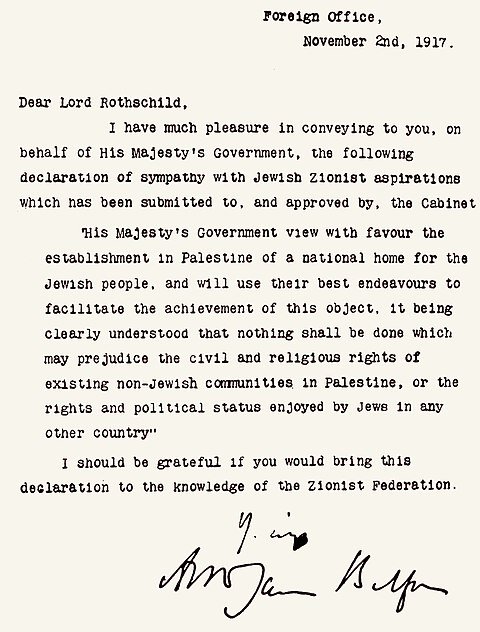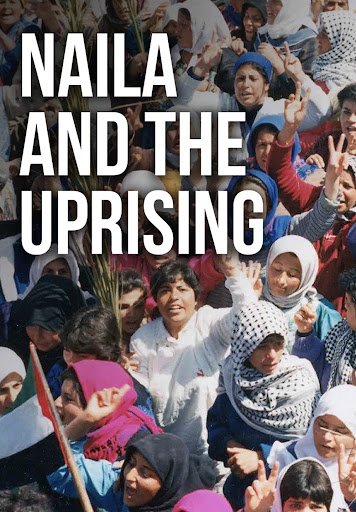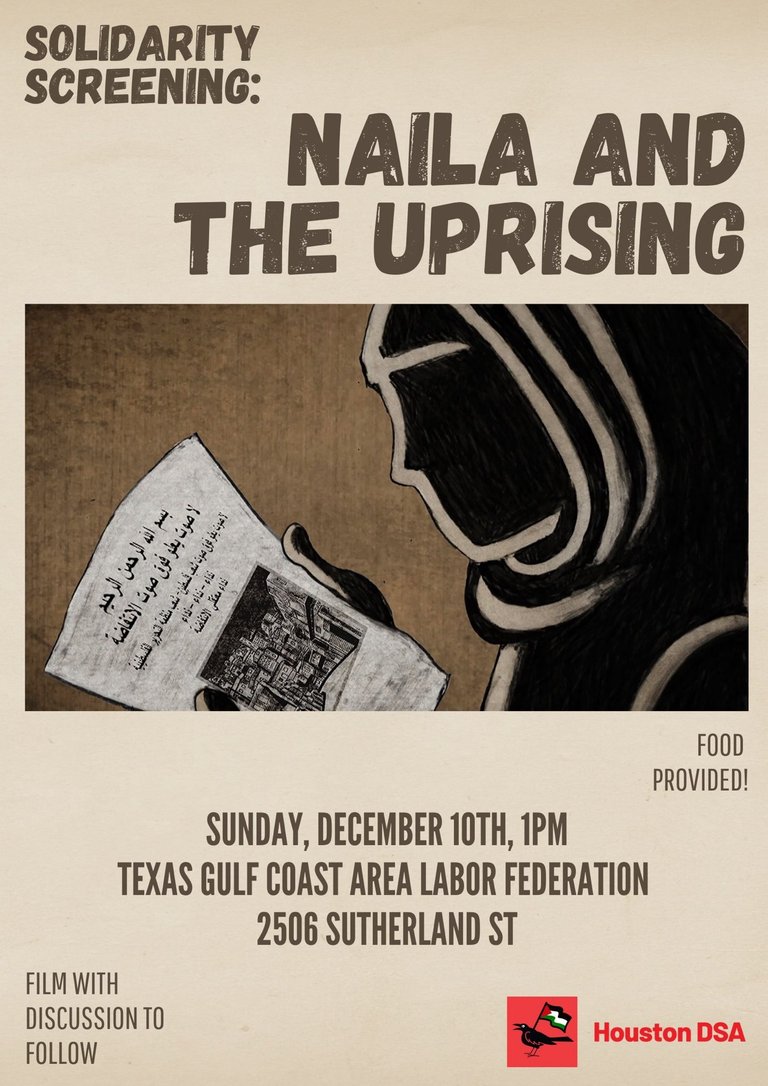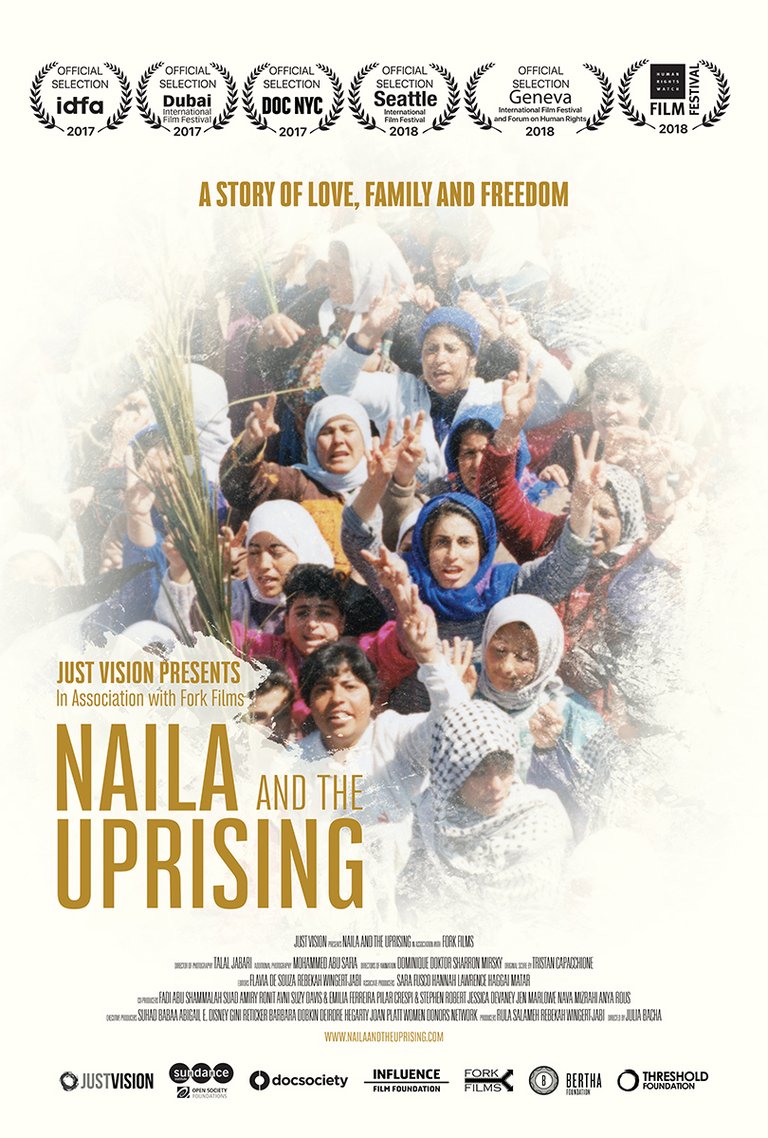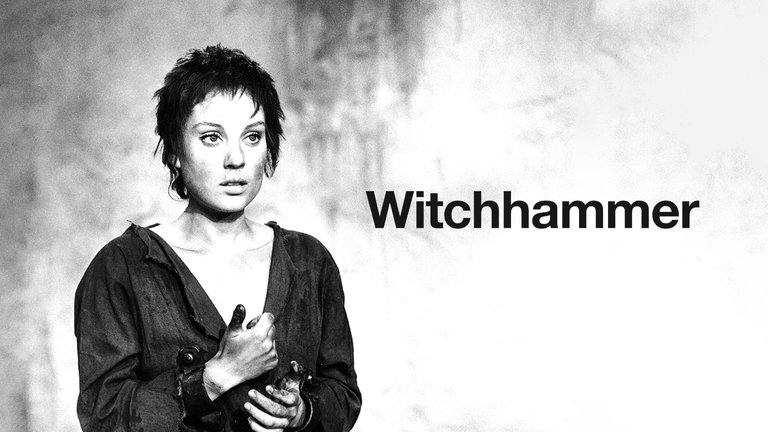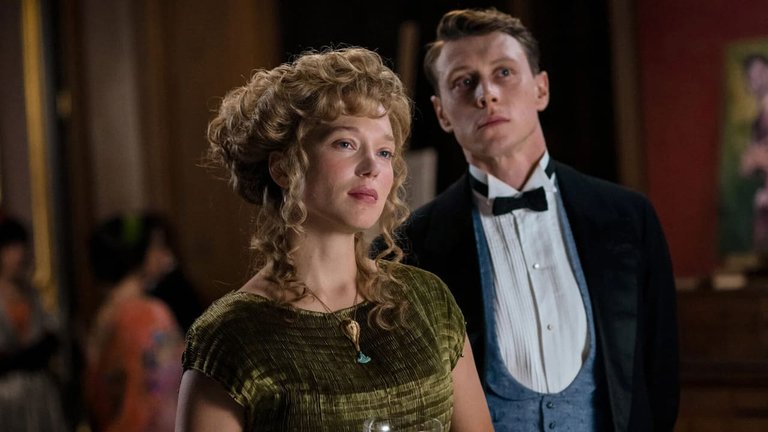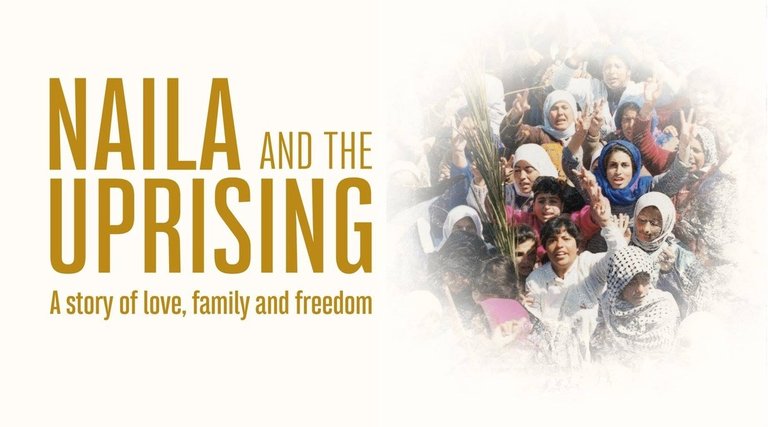
The conflict between Israel and Palestine is a difficult topic to discuss on this side of the world, especially because most of the time we don't have all the information or we know very little about the history of this "war" that has intensified today. I don't intend to give an explanation of all the facets of the conflict - I couldn't - but I would like to mention some key points to understand the framework of the events narrated in the film whose review I want to share with you today.
El conflicto entre Israel y Palestina es un tema difícil de conversar de este lado del mundo, sobre todo porque la mayoría de las veces no se tiene toda la información o se conoce muy poco de la historia de esta "guerra" que se ha recrudecido en la actualidad. No pretendo dar una explicación de todas las aristas del conflicto - no podría - pero sí quisiera mencionar algunos puntos claves para entender el marco de los acontecimientos narrados en la película cuya reseña les quiero compartir hoy.
Let's start from the fact that the State of Israel as such, the country, didn't exist just a hundred years ago. The Jewish people or the Jewish race have been talked about for millennia, but they were more than anything else that "people chosen by God" according to their beliefs, those families scattered throughout the world. It's true that anti-Semitism is much older than the Holocaust (let's think that three months before Christopher Columbus arrived on American soil, tens of thousands of Jews were expelled from Spain), but it's also true that the constitution of Israel, as a country, was made somewhat "by force" and without respecting previous agreements. After the Nazi genocide, there was a lot of international pressure to help the Jews have a country (guilt? compensation? moral debt?), but a good part of them already lived in the territory known as Palestine. They had been there a long time ago, especially after the Balfour Declaration of 1917 which mentioned establishing a "national home" (a term that didn't exist in international law) for Jews in Palestinian territory, "being clearly understood that nothing shall be done which may prejudice the civil and religious rights of existing non-Jewish communities in Palestine". After World War I and the Treaty of Versailles, the League of Nations designated the United Kingdom as the mandate for Palestine and in 1947 when the British withdrew from there, there was already a history of skirmishes between the Palestinian inhabitants of the territory and their new Jewish "neighbors", a moment that Israel took advantage of to proclaim its independence.
Partamos de el hecho de que el Estado de Israel como tal, el país, no existía hace apenas cien años atrás. Se habla del pueblo judío o de la raza judía desde hace milenios, pero eran más que nada ese "pueblo escogido por Dios", según sus creencias, esas familias desperdigadas por el mundo. Es cierto que el antisemitismo es mucho más antiguo que el holocausto (pensemos que tres meses antes de que Cristóbal Colón llegase a tierras americanas, decenas de miles de judíos fueron expulsados de España), pero también es cierto que la constitución de Israel, como país, se hizo un poco por la fuerza y sin respetar acuerdos previos. Después del genocidio nazi, hubo mucha presión internacional para ayudar a que los judíos tuvieran un país (¿culpa? ¿compensación? ¿deuda moral?), pero ya una buena parte de ellos vivía en el territorio conocido como Palestina. Habían llegado allí desde hacía mucho tiempo, especialmente después de la Declaración de Balfour de 1917 que mencionaba establecer un "hogar nacional" (término que no existía en el derecho internacional) para los judíos en territorio palestino, "quedando claramente entendido que no se hará nada que pueda perjudicar los derechos civiles y religiosos de las comunidades no judías existentes en Palestina". Después de la Primera Guerra Mundial y el tratado de Versalles, la Sociedad de Naciones designó al Reino Unido el mandato sobre Palestina y en 1947 cuando los británicos se retiraron de allí, ya existían antecedentes de escaramuzas entre los habitantes palestinos del territorio y sus nuevos "vecinos" judíos, momento que aprovechó Israel para proclamar su independencia.

It's not surprising then that the conflict became more acute and escalated to the major events we see today. It's very complex to analyze all the episodes of this story, but I want to shed light on two very specific facts that, at least I, was unaware of until last Saturday when I went to a movie theater to see Naila and the Uprising. The first is that the Palestine Cinema Days (an annual event) was organized on this occasion in more than two hundred cities in 60 different countries and I learned that it always takes place around November 2nd because that was the date on which the Balfour Declaration - that broken promise - was signed.
No sorprende entonces que se agudizara el conflicto y que escalara a las instancias mayores que vemos hoy. Es muy complejo analizar todos los episodios de esta historia, pero quiero dar luz sobre dos hechos muy concretos que, al menos yo, desconocía hasta el sábado pasado cuando acudí a una sala de cine a ver Naila and the Uprising. La primera es que el Palestine Cinema Days (evento celebrado anualmente) se organizaró en esta oportunidad en más de doscientas ciudades en 60 países diferentes y supe que siempre se hace alrededor del 02 de noviembre porque fue la fecha en la que se firmó la Declaración Balfour, aquella promesa rota.
And the second thing I want to highlight is the story told in the documentary directed by Julia Bacha. Barely two decades after the formation of the State of Israel, the Palestinian territory began to be occupied by Jewish soldiers. That is to say, the Israeli government established military forces in Palestine which, just as in Nazi-occupied France, under the guise of controlling and monitoring national security, what they really did was to round up their "neighbors". Prohibition of work permits, of free movement, tactics very similar to those suffered by the Jews under the Nazi regime, were now applied by the same Jews towards their fellow Arabs. It was denounced and known, but the world did nothing. After two decades of harassment, political persecution and the expulsion, exile and banishment of Arab leaders, a movement arose in Palestine to fight for the rights of the Palestinian people who wanted to be heard, respected and treated as they felt they deserved. The story of this peaceful movement (it should be noted that), mostly made up of women (another very important feature to highlight, especially given the place and the time) in which even Jewish women joined, is what is told in less than ninety minutes in Naila and the Uprising, a documentary that serves to give a different look at the conflict between Arabs and Jews and to recognize that, as almost always, we haven't been told the whole truth and that the Western vision on this subject has been mostly biased in favor of only one side.
Y lo segundo que quiero destacar es la historia que narra el documental dirigido por Julia Bacha. Apenas dos décadas después de la formación del Estado de Israel, el territorio palestino comenzó a ser un territorio ocupado por militares judíos. Es decir, el gobierno israelí estableció fuerzas militares en Palestina que, tal como en la Francia ocupada por los nazis, bajo la fachada de controlar y vigilar la seguridad nacional lo que realmente hacían era acorralar a sus "vecinos". Prohibición de permisos laborales, de libre circulación, tácticas muy similares a las sufridas por los judíos bajo el régimen nazi, eran ahora aplicadas por los mismos judíos hacia sus congéneres árabes. Fue denunciado y se supo, pero el mundo no hizo nada. Tras dos décadas de hostigamiento, de persecuciones políticas y la expulsión, el exilio y el destierro de líderes árabes, surgió en Palestina un movimiento de lucha por los derechos del pueblo palestino que quería ser escuchado, respetado y tratado como sentían que merecían. La historia de este movimiento pacífico (hay que destacar eso), mayormente constituido por mujeres (otro rasgo importantísimo a destacar, sobre todo por el lugar y la época) en al que incluso se unieron mujeres judías, es lo que se cuenta en menos de noventa minutos en Naila and the Uprisig, un documental que sirve para dar una mirada diferente al conflicto entre árabes y judíos y para reconocer que, como casi siempre, no se nos ha contado toda la verdad y que la visión occidental sobre este tema ha estado mayormente sesgado a favor de un sólo lado.

You may remember, or if you are very young you can google it now, that in the late 1990s there were peace talks between Arabs and Jews involving George Bush (senior) and then Bill Clinton, but that table whose talks began in Oslo was another betrayal - perhaps more painful because it was internal - in which Arab leaders agreed on conditions without having consulted with the people or with the representation of the political movements of the 1980s that had led precisely to those talks and that were at that time negotiating in Madrid. At that infamous table that agreed on that useless treaty, there wasn't a single woman. None of those who had fought for years to make the voice of their people heard were present.
Quizás recuerden, o si son muy jóvenes lo pueden googlear ahora, que a finales de los años noventa hubo unas negociaciones de paz entre árabes y judíos que involucraron a George Bush (padre) y luego a Bill Clinton, pero esa mesa cuyas conversaciones comenzaron en Oslo fue otra traición - acaso más dolorosa por ser interna - en la que dirigentes árabes pactaron condiciones sin haberlo consultado con el pueblo ni con la representación de los movimientos políticos de los años ochenta que habían conducido precisamente a esas conversaciones y que se encontraban en ese momento negociando en Madrid. En esa infame mesa que pactó ese inútil tratado, no hubo ni una sola mujer. Ninguna de las que había luchado durante años por hacer oír la voz de su gente estuvo presente.
Naila and the Uprising is a documentary that represents a very valuable testimony in favor of minorities, not only because it gives visibility to the Palestinian cause, but also because it pays tribute to a group of brave and committed women who, in the midst of an unfavorable situation, achieved great things that were later not duly recognized. I believe that if they had been present at the negotiating table or if that surprise parallel table had not existed, the conflict would not have reached the genocide that is being experienced today. According to TRT Español: "Israel has dropped 70,000 tons of bombs on Gaza since October, which exceeds the bombings of World War II against Dresden, Hamburg and London combined, warns observatory". It doesn't just outnumber them: it doubles them. There can be no talk of war. The disproportion of forces, the impunity of these acts, the scale of Israel's war actions and the direct or indirect censorship that the media and people suffer when trying to report things like this, make this something other than a war between two sides. It's a genocide, a massacre that the world is witnessing and no one is taking responsibility for. The silence of the media, of governments and of the people made me remember a phrase by Elie Wiesel - a Jewish survivor of concentration camps, by the way - who said: "Human suffering everywhere concerns men and women everywhere". We should remember that.
Naila and the Uprising es un documental que representa un testimonio muy valioso a favor de las minorías, no sólo por darle visibilidad a la causa palestina, sino también porque rinde homenaje a un grupo de mujeres valientes y comprometidas que en medio de una situación desfavorables lograron cosas grandiosas que luego no les fueron reconocidas debidamente. Creo que de haber estado presentes en la mesa de negociaciones o de no haber existido esa mesa paralela sorpresa, el conflicto no habría llegado al genocidio que se vive hoy. De acuerdo con TRT Español: "Israel ha lanzado 70.000 toneladas de bombas sobre Gaza desde octubre, lo que supera los bombardeos de la Segunda Guerra Mundial contra Dresde, Hamburgo y Londres combinados, advierte observatorio". No sólo los supera: los duplica. No se puede hablar de guerra. La desproporción de fuerzas, la impunidad de estos actos, la escala de las acciones bélicas de Israel y la censura directa o indirecta que sufren los medios de comunicación y las personas al intentar contar cosas como esta, convierten esto en algo distinto a una guerra entre dos bandos. Es un genocidio, una masacre de la que el mundo está siendo testigo y nadie se está haciendo responsable. El silencio de los medios, de los gobiernos y de la gente me hizo recordar una frase de Elie Wiesel - judío sobreviviente de los campos de concentración, por cierto - que dijo: "El sufrimiento humano en cualquier lugar concierne a hombres y mujeres en todas partes". Deberíamos recordar eso.
